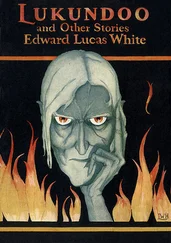Margaret Oliphant - A Widow's Tale, and Other Stories
Здесь есть возможность читать онлайн «Margaret Oliphant - A Widow's Tale, and Other Stories» — ознакомительный отрывок электронной книги совершенно бесплатно, а после прочтения отрывка купить полную версию. В некоторых случаях можно слушать аудио, скачать через торрент в формате fb2 и присутствует краткое содержание. Издательство: Иностранный паблик, Жанр: foreign_prose, на английском языке. Описание произведения, (предисловие) а так же отзывы посетителей доступны на портале библиотеки ЛибКат.
- Название:A Widow's Tale, and Other Stories
- Автор:
- Издательство:Иностранный паблик
- Жанр:
- Год:неизвестен
- ISBN:нет данных
- Рейтинг книги:3 / 5. Голосов: 1
-
Избранное:Добавить в избранное
- Отзывы:
-
Ваша оценка:
- 60
- 1
- 2
- 3
- 4
- 5
A Widow's Tale, and Other Stories: краткое содержание, описание и аннотация
Предлагаем к чтению аннотацию, описание, краткое содержание или предисловие (зависит от того, что написал сам автор книги «A Widow's Tale, and Other Stories»). Если вы не нашли необходимую информацию о книге — напишите в комментариях, мы постараемся отыскать её.
A Widow's Tale, and Other Stories — читать онлайн ознакомительный отрывок
Ниже представлен текст книги, разбитый по страницам. Система сохранения места последней прочитанной страницы, позволяет с удобством читать онлайн бесплатно книгу «A Widow's Tale, and Other Stories», без необходимости каждый раз заново искать на чём Вы остановились. Поставьте закладку, и сможете в любой момент перейти на страницу, на которой закончили чтение.
Интервал:
Закладка:
"Do you expect," she said, "Mr Landon here to-day?" with a smile, yet a catch of her breath.
"Mr Landon!" The astonishment of young Fareham was extreme. "Is he in town? We have not seen him since May."
"Horace," said Mrs Lycett-Landon, half-rising from her chair and then falling back upon it. "Horace, your father must be very ill. He must have had – some operation – he must have thought I would be over-anxious – "
She became very pale as she uttered these broken words, and looked as if she were going to faint; and Horace, too, stared with bewildered eyes. Young Fareham began to be alarmed. He saw that his quick response was altogether unexpected, and that there was evidently some mystery.
"Let me see," he said, appearing to ponder, "perhaps I am making a mistake. Yes, I am sure he was here in May – he had just come back from the Continent. Wasn't it so? Oh, then, I must have misunderstood him. I thought he said – Now I remember, he certainly was here in town. Yes, came to tell me something about letters – what was it?"
"Perhaps where you were to send his letters," Mrs Landon said quickly. "That is what we want to know." While she was listening to him, her mind had been going through a great many questions, and she had brought herself summarily back to calm. If it should be serious illness, all her strength would be wanted. She must not waste her forces with foolish fainting or giving in, but husband them all.
Then there arose an inquiry in the office. One clerk after another was called in to be questioned. One said Mr Lycett-Landon's letters were all forwarded to the Liverpool house, or to the Elms, Rockferry, his private address; another, that they were sent to the club; and it was not till some time had been lost that one of the youngest remembered an address to which he had once been sent, to a lodging where Mr Landon was staying. He remembered all about it, for it was a pretty house, with a garden, very unlike Jermyn Street.
"It was just after Mr Landon came back from abroad," the youth said; and by degrees he remembered exactly where it was, and brought it written down, in a neat, clerkly hand, on an office envelope. It was a flowery address, a villa in a road, both of them fanciful with a cockney sentiment.
Mrs Lycett-Landon took the paper from him with a smile of thanks; but she was so bewildered and confused that she rose up and went out of the office without even saying good-morning to young Fareham.
"Mamma, mamma," cried Horace after her, "you have never said – "
"Oh, don't trouble her," said young Fareham; "I can see she is anxious. You'll come back, won't you, and let me know if you've found him? But I hope there is some mistake."
He did not say what kind of mistake he hoped for, nor did Horace say anything as he followed his mother. He, like Milly, thought it impossible that papa would have hidden himself thus to be ill. He was a little nervous of speaking to his mother when he saw how pale and preoccupied she looked.
"Shall I call a cab?" he said. "Mother, do you really think there is so much to fear?"
"He has never been on the Continent," was all his mother could say.
"No; that's true. They just have got that into their heads. It was no business of theirs where he went."
"It is everybody's business where a man goes – a man like him. I think I know what it is, Horace. He has been fretful for some time, and restless; he must have been ill, and he has been going through an operation. Don't say anything; I feel sure of it. Perhaps there was danger in it, and he feared the fuss, and that I should be over-anxious."
"We always thought as children that papa liked to be made a fuss with," said simple Horace.
"You thought so in the nursery, because you liked it yourselves. Yes, we had better have a cab. How full the streets are! one cannot hear oneself talking."
Then she was silent a little till the hansom was called. It was a very noisy part of the City, where the traffic is continual, and it was very difficult to hear a woman's voice. She paused before she got into the cab.
"Now I think of it," she said, "you had better go and telegraph to Milly, for she will be anxious. Go back to the hotel and do it. Tell her that we have got to town all safe, and that you will send her word this evening how papa is."
"But, mother, you are not going without me! and it will be better to telegraph after we know."
"That is what I wish you to do, Horace. It might upset him. I think it a great deal better for me to go by myself. Just do what I tell you. Milly will want to know that we have arrived all right; and wait at the hotel till I send for you."
"You had much better let me come with you, mother."
The noise was so great that she only made a "No" with her mouth, shaking her head as she got into the cab, and gave him the address to show the cabman. Then, before Horace had awakened from his surprise, she was gone, and he was left, feeling very solitary, pushed about by all the passers-by upon the pavement. The youth was half angry, half astonished. To go back to the hotel was not a thing that tempted him, but he was so young that he obeyed by instinct, meaning to pour forth his indignation to Milly. Even in a telegram there is a possibility of easing one's heart.
CHAPTER V.
THE HOUSE WITH THE FLOWERY NAME
Mrs Lycett-Landon drove off through the crowded City streets in a curious trace of excited feeling. She had a sense that something was going to happen to her; but how this was she could not have told. Nor could she have told why it was she had sent Horace away. Perhaps his father might not wish to see him, perhaps he might prefer to explain to her alone the cause of his absence. She felt the need of first seeing her husband alone, though she could not tell why. It was a very long drive. Out of the bustling City streets she came to streets more showy, less encumbered, though perhaps scarcely less crowded, and then to some which showed the lateness of the season by shut-up houses and diminished movement, and then to line after line of those dingy streets, all exactly like each other, which form the bulk of London. There are so many of them, and they are so indistinguishable. She looked out of the hansom and noted them all as she drove on – but yet as if she noted them not, as if it were they that glided by her, as in a dream. Then she reached the suburbs, the roads with the flowery names, houses buried in gardens, with trees appearing behind the high enclosing walls. This perhaps was the strangest of all. She could not think what he could want here, so far out of the world, until she recalled to herself the idea of an illness and an operation which had already faded out of her mind – for that, like every other explanation, was so strange, so much unlike all his habits. Her heart began to beat as the cab turned into the street, going slowly along to look for the special house, and she found herself on the point of arriving at her destination. Though she was so anxious to find her husband, she would now, if she could, have deferred the arrival, have called out to the driver that it was not here, and bidden him go on and on. But there could not be any mistake about it – there was the name of the house painted on the gate. It was a little gate in a wall, affording a glimpse of a pretty little garden shaded with trees inside. She would not let the cabman ring the bell, but got out first and paid him, and then, when she could not find any further excuse, rang it – so faintly at first that no sound followed. She waited, though she knew she could not have been heard, to leave time for an answer. Looking in under the little arch of roses to the smooth bit of lawn, the flowers in the borders, she said to herself that there was not very much taste displayed in the flowers – red geraniums and mignonette, the things that everybody had, and great yellow nasturtiums clustering behind – not very much taste or individuality, but yet a great deal of brightness, and the look as of a home; not lodgings, but a place where people lived. There were some garden-chairs about, and on a rustic table something that looked like a woman's work. How natural it all seemed, how peaceable! It was curious that he should be living in such a place. Perhaps, she said to herself, it was the house of some clerk of the better sort – some one who had known him in his early years, and had wished to be kind: and in good air, and out of the noise of the streets. She made all these explanations as she stood at the door waiting for some one to answer a ring which she knew very well could not have been heard – unable to understand her own strange pause, and the manner in which she dallied with her anxiety. But this could not last for ever. After she had waited more than the needful time she rang again, and presently the door was opened by an unseen spring, and she went in within the pretty enclosure. How pretty it was – only red geraniums and nasturtiums, it was true, but the soft odour of the mignonette, and the sunshine, and the silence – all so peaceful and so calm. There came over her a certain awe as she stepped across the threshold and closed behind her the garden-door. The windows were all open, the house-door open. Under the trees on the little lawn were two basket-chairs, and a white heap of muslin, which some woman must have been working at, on the table. Mrs Lycett-Landon felt like an intruder in this peaceful place. She said to herself at last that there must be some mistake, that it could not be here.
Читать дальшеИнтервал:
Закладка:
Похожие книги на «A Widow's Tale, and Other Stories»
Представляем Вашему вниманию похожие книги на «A Widow's Tale, and Other Stories» списком для выбора. Мы отобрали схожую по названию и смыслу литературу в надежде предоставить читателям больше вариантов отыскать новые, интересные, ещё непрочитанные произведения.
Обсуждение, отзывы о книге «A Widow's Tale, and Other Stories» и просто собственные мнения читателей. Оставьте ваши комментарии, напишите, что Вы думаете о произведении, его смысле или главных героях. Укажите что конкретно понравилось, а что нет, и почему Вы так считаете.












